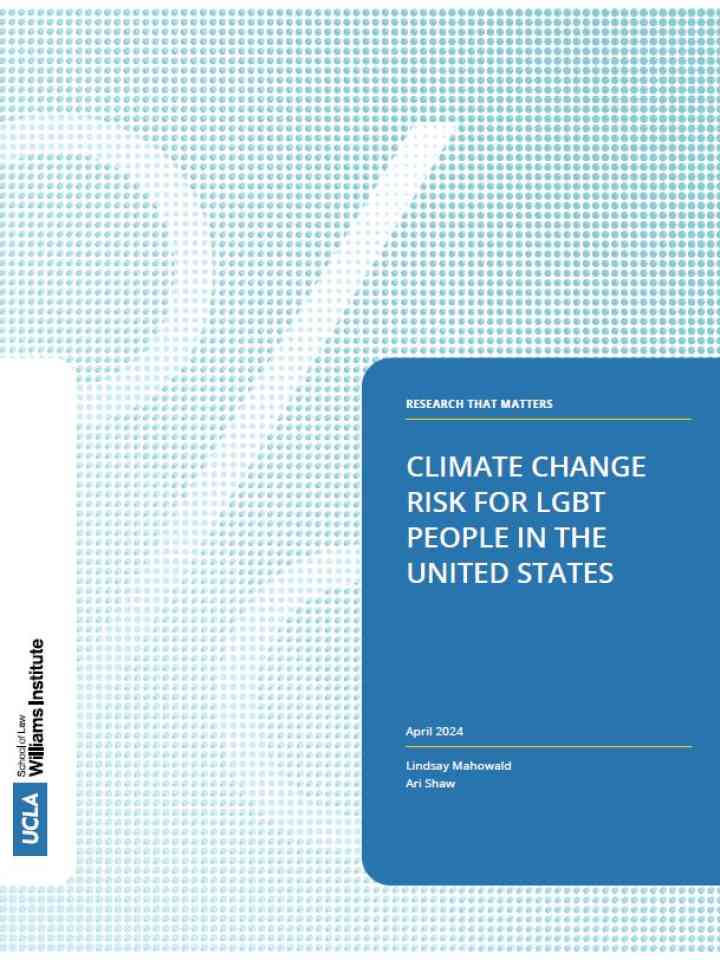Climate change risk for LGBT people in the United States
This report provides some of the first empirical documentation as to how LGBT people differentially experience the negative effects of climate change compared to non-LGBT people. Climate change represents a global challenge, but it also exacerbates existing disparities among individuals and communities. LGBT people face discrimination and exclusion, creating unique vulnerabilities that compound and heighten their exposure to climate-related harms. Using U.S. Census data and climate risk assessment data from NASA and the Federal Emergency Management Agency (FEMA), we conducted a geographic analysis to assess the climate risk impacting same-sex couples.
The recommendations of this report, include:
- Policymakers and service providers must ensure that disaster relief is accessible and administered without discrimination on the basis of sexual orientation, gender identity, or gender expression, including safe shelters, access to medication such as HIV treatment, and financial support for displaced LGBT individuals and families.
- Given that LGBT populations are more likely to live in areas with poor infrastructure, worse-built environments, and fewer resources to respond to climate change, development plans, and zoning policies, particularly in urban areas, should prioritize expanding green space and enhancing structural resilience. Policies that mitigate discriminatory housing practices and provide economic relief to LGBT people will bolster the resilience of these communities to climate events.
- Future research should examine how disparities across housing, employment, and healthcare among LGBT people, particularly transgender individuals and LGBT people of color, compound the geographic vulnerabilities to the effects of climate change.
- Federal and state surveys, including the U.S. Census, should include measures of sexual orientation and gender identity to increase the scope and granularity of information available on LGBT people, including assessments of climate risk.
- NASA and FEMA risk assessments, as well as other measures of climate risk, should include LGBT people among social groups with elevated vulnerability to climate change when assigning social vulnerability scores.
Explore further
